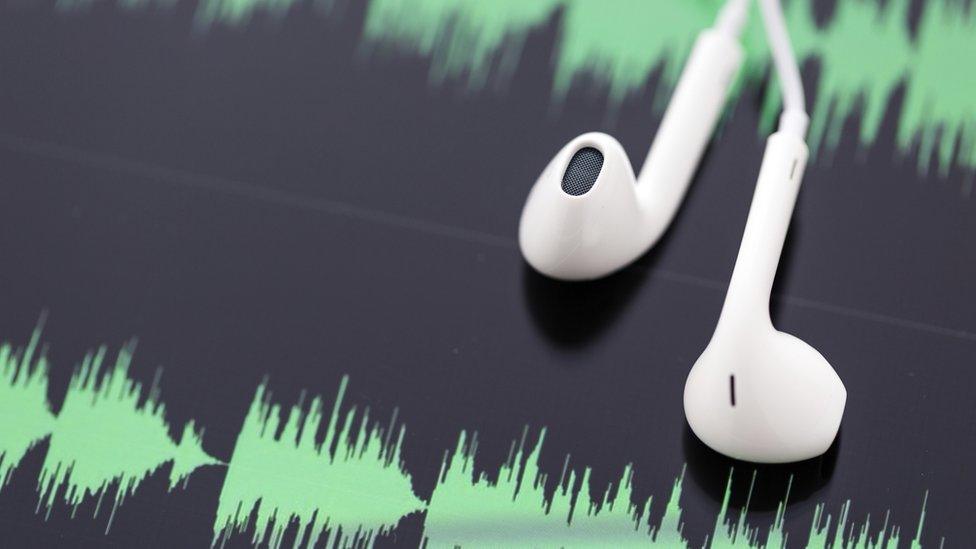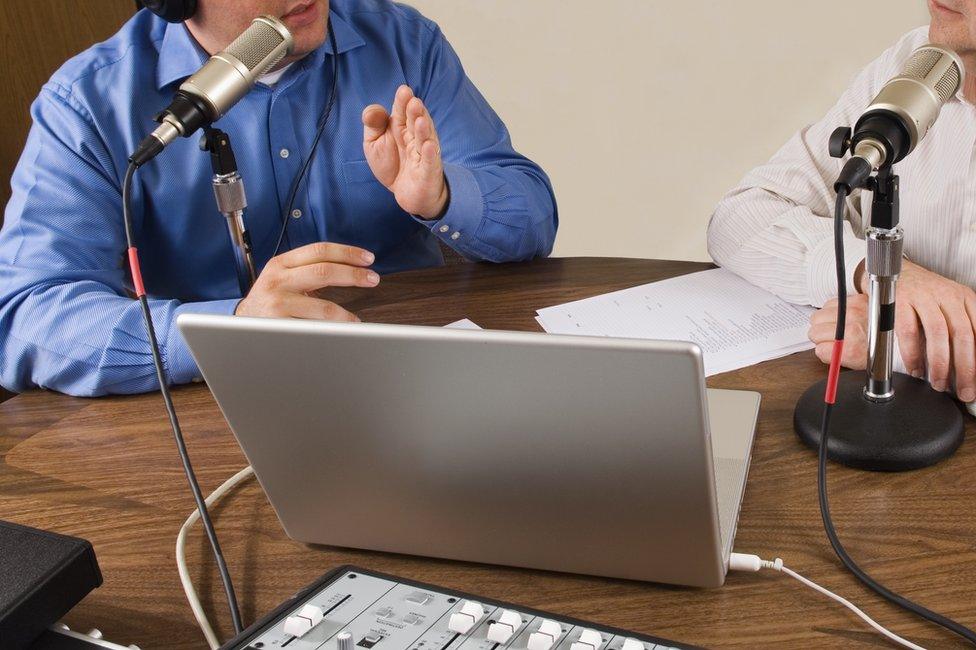Can Serial make podcasts pay?
- Published
- comments

The podcast Serial is back for its second series. Will its popularity give radio another chance to shine?
The news spread around social media like wildfire. Within minutes the website you could get the new product from was crashing, unable to cope with the demand. Was it a new gadget or game? No, it was the first episode of series two of Serial - a podcast. And that is very good news for anyone who worries about whether radio has a future.
Serial, I should explain for anyone who does not follow these matters, was a huge and somewhat surprising hit when its first series appeared last year. Coming out of the same stable as NPR's This American Life, it was a long, meandering but compelling investigation into a real-life murder story. As listeners tried to work out whether or not Adnan Syed was guilty the audience kept growing, and in all a hundred million people downloaded the podcast.
The second series will tell the story of Sergeant Bowe Bergdahl, an American soldier held captive by the Taliban and charged with desertion. It looks likely to gain an even bigger audience than the first series - and prove far more lucrative.
Before the first launch the makers of Serial struck an advertising deal with an email marketing firm called Mailchimp, assuming the audience would be far smaller than was eventually achieved. The clever ads, with people mispronouncing the name as "Mailkimp" went viral, gaining the brand a far bigger bang for its buck than it can ever have imagined. Two other advertisers also enjoyed the exposure and they, along with some new brands, have all signed up for the second season.
What this means is that podcasting, which has long struggled to prove its commercial viability, suddenly looks an attractive destination for advertisers - and investors. Gimlet Media, the firm behind the podcast Startup - which documents its own progress as a business - has just raised $6m at a valuation of $30m.
There are countless podcasts that are very cheap to make and consist of little more than random, unedited conversations, but they struggle to attract much of an audience. What Gimlet has found is that a carefully crafted piece of radio with high production values attracts far more listeners - and while that is expensive to make, it is a far more attractive commercial proposition.

Early attempts to persuade listeners to pay for podcasts proved pretty unsuccessful on both sides of the Atlantic, so the business model is going to depend, like commercial radio, on various forms of advertising. Yet in the UK and elsewhere radio companies have found that even very simple speech programmes are more expensive to make than music output, and less easy to fund via advertising.
Brian Jenkins, a consultant who's worked in the commercial radio industry for 30 years, tells me that it is "the Cinderella medium" for advertisers even though it still offers the second biggest audiences after television.
Now though, advertisers in the United States are finding that audio can be a smart way to connect with audiences, either through straightforward ad spots and sponsorship or via the fashionable new method of "branded content." So will highly crafted speech radio, in the form of podcasts, now enjoy a revival? Perhaps - but only if it tells a compelling story which appeals to a global audience. And that, as anyone in the radio business will tell you, is not an easy trick to pull off.